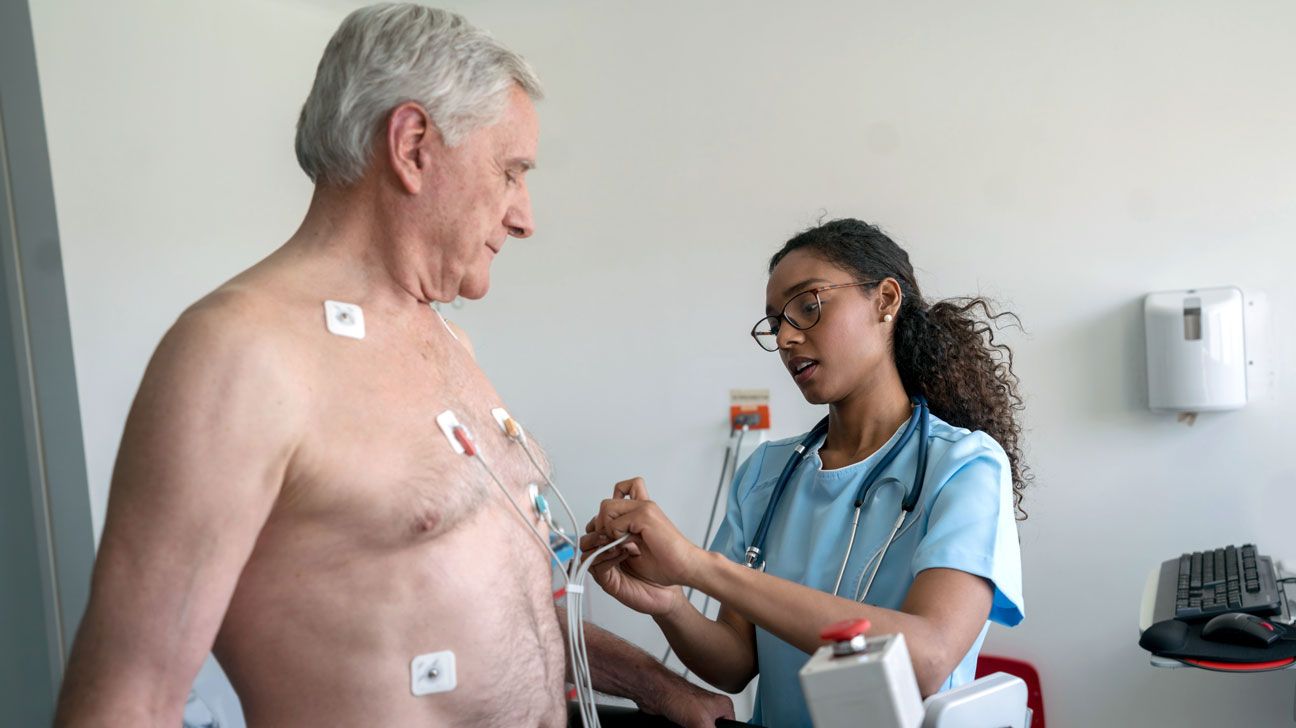
- A new study showed the positive effect of a traditional Chinese medicine compound, Tongxinluo, among patients with heart attack.
- Symptoms of this heart attack or acute myocardial infarction include sudden chest discomfort spreading to the arms or neck, with associated sweating and/or nausea.
- While further research is needed to explore tongxinluo’s impact on cardiac health, reported benefits include arterial anti-inflammatory effects, stabilization of plaque to prevent rupture and reduction of cholesterol.
Causing more than one million deaths in the U.S. each year, acute myocardial infarction known more commonly as a heart attack is a serious health concern. Researchers are still exploring different methods of treatment for this health condition.
Traditional Chinese medicine, Tongxinluo, has been tested in small human studies to observe its impact on people with a certain type of heart attack called ST-segment elevation myocardial infarction (STEMI). To see its effect on a larger scale, researchers conducted a clinical trial and examined patients with STEMI.
The study was published this week in JAMA.
What is Tongxinluo?
“Tongxinluo is a traditional Chinese compound composed of powders and abstracts from multiple plants and insects,” said Dr. Stuart Zarich, Chief, Cardiovascular Medicine, Bridgeport Hospital. “It reduces inflammation in the blood vessels and has been approved for heart attack and stroke in China since 1996.”
Zarich was not involved in the research.
The researchers theorize that certain ingredients in the compound are cardioprotective. This includes forms of ginsenosides that are the main “major active pharmacological components” in ginseng and peoniflorin a chemical found in Paeonia lactiflora root or white peony root.
One group of patients was given Tongxinluo and the other was given a placebo for one year, paired with several other STEMI treatments.
Findings indicated the positive effect of Tongxinluo, improving clinical outcomes of STEMI patients over 30-day and one-year periods.
“Prior studies were not very rigorous but the current study appears well done and was double-blind and randomized which is the gold standard to test a new agent, Zarich explained. “However prior studies have lacked rigor in both performing the study and in follow-up. Prior anti-inflammatory drugs have had success in heart attack patients so the theory is sound.”
Before trying any traditional Chinese medicine in clinical practice, “we would need a well-manufactured compound with a proven side effect profile, knowledge about drug-to-drug interactions and overall safety and likely a complementary US study to validate the results,” said Zarich.
Symptoms and causes of heart attack
The heart is a muscle whose main function is to pump oxygen-rich blood. To do so, the heart requires its own supply of oxygen and nutrients, which it receives via the arteries that sit on top of the heart muscle called the coronary arteries.
An acute myocardial infarction is when blood flow to one or more of these arteries is suddenly disturbed, causing a decrease in blood supply to the associated heart muscle segments, Dr. Dmitriy Nevelev, Associate Director of Cardiology at Staten Island University Hospital, explained. If not treated urgently with revascularization (restorage of blood flow, typically with stenting), this can cause permanent damage to the heart muscle.
“Acute infarction is typically preceded by years of plaque buildup within the coronary artery walls because of modifiable risk factors such as high cholesterol, high blood pressure, diabetes, tobacco use, unhealthy diet, and lack of exercise, and non-modifiable risk factors such as genetics, age, and ethnicity,” said Nevelev. “Sudden blockage of blood flow can occur from the bursting of unstable plaque or from blood clot formation due to significant artery narrowing.”
Symptoms can follow different patterns, but the most classic is sudden chest discomfort radiating to the arms or neck, with associated sweating and/or nausea, Nevelev added.
For women, symptoms may be different and include shortness of breath, jaw or back pain.
Tongxinluo’s benefits
“Tongxinluo is a relatively unknown medication in the Western world and the magnitude of the benefits in acute infarction in the CTS-AMI study were certainly provocative,” Nevelev stated. “It is a compound of traditional Chinese herbs and insects taken as 4 tablets three times daily.”
Purported cardiac benefits include:
- arterial anti-inflammatory effects
- stabilization of plaque to prevent rupture
- cholesterol-lowering effects
“All of these properties are critical in the treatment of coronary artery disease and thus in vulnerable populations without access to current guideline-directed therapy there may be a benefit,” said Nevelev. “However, it’s unclear how the addition of this medication to established therapy would impact outcomes in a Western population. There are also concerns for medication burden, as this medication’s recommended dosage is 12 pills daily.”
Risks of using Tongxinluo
The reported side effect profile for Tonxinluo was very favorable with no increase in serious side effects in the trial population compared to the placebo group. Long-term data and monitoring are needed to ensure its safety and evaluate for any medication interactions, Nevelev explained.
Best treatment practices for those who have heart attack
Establishing a relationship with a cardiologist early on to help determine your risk of heart attack and to understand which symptoms require immediate attention can be helpful.
“Much like the treatment strategy for acute stroke, we prioritize minimizing time to treatment to limit the damage to heart tissue,” Nevelev stated. “If someone with known coronary disease or with significant risk factors for heart disease has sudden onset symptoms, it’s critical to seek medical attention at an emergency department.”
Takeaway
According to a new study, the traditional Chinese medicine compound Tongxinluo demonstrated beneficial effects on patients with acute myocardial infarction.
People with acute myocardial infarction typically exhibit symptoms such as chest discomfort spreading to the arms or neck, with associated sweating and/or nausea.
Although more studies are needed to see tongxinluo’s benefits, the results of this clinical trial are promising.
This Traditional Chinese Medicine May Help With Heart Attack Recovery
Source: Pinoy Lang Sakalam



0 (mga) komento:
Mag-post ng isang Komento